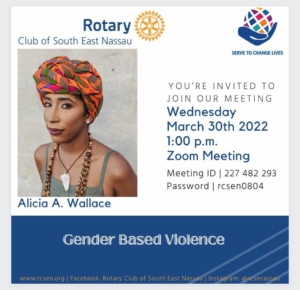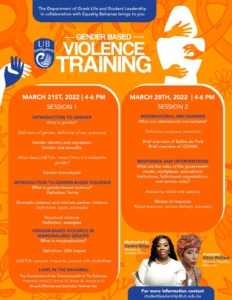Comprehensive sexuality education in all schools is an absolute necessity. It is a preventative measure that can and does protect children from sexual violence in various forms including incest and rape by people known to them. The absence of comprehensive sexuality education and the ongoing refusal to implement it in all schools is not only a disservice to children and the people who have gone through the system, but an act of violence. It is withholding information that is critical for people to assess risk, make good decisions, identify acts of violence, and report threats, intimidation, and acts of violence toward them by (would-be) perpetrators.
The children of this country need access to information. We need to acknowledge and respond to the fact that they will not be children forever, and they cannot be expected to responsibly participate in a world they do not understand. Providing them with information gives them the ability to make informed decisions. It does not promote or encourage recklessness.
Comprehensive sexuality education does not teach children how to have sex. It increases their ability to prioritise their health and wellbeing, not only when they decide to engage in sexual activity, but as they navigate relationships.
Below are ten facts that are important for us to know about comprehensive sexuality education.
-
It is scientifically accurate. It includes biology and uses the proper names for body parts including penis, vagina, vulva, and anus. Knowing these words and being able to identify these body parts is critical for children as it enables them to clearly communicate about what is happening to their bodies and report acts of sexual violence against them.
-
Contraception, pregnancy, and sexually transmitted infections (STIs) are covered. Students are introduced to condoms (both external, known as male condoms, and internal, known as female condoms), oral contraceptives (commonly known as birth control pills), implants, injections, patches, and intrauterine devices. They are taught about pregnancy and how it happens, how it can be prevented, and which contraceptive methods also protect against STIs. It is important for young people to know the proper names and common names of STIs, the symptoms, how they are transmitted, and the available treatments. At least as important as this information is national statistics on the prevalence of STIs.
-
Comprehensive sexuality education is for all ages and curriculum is designed to be age-appropriate. Those in the first grade do not receive the same information as those in the tenth grade. Younger students are taught that their bodies belong to them, that there are good touches and bad touches, and that they can trust their own instincts and feelings about which touches are good and which touches are bad. They are taught about consent in simple, relatable ways and given permission to say no when anything is uncomfortable, and encouraged to talk to their parents or another authority figure if someone makes them feel uncomfortable. High school students are taught more about biology, relationships, and making the distinction between sex and rape.
-
Comprehensive sexuality education has a human rights approach. It focuses on the humanity of people and does not aim to shame them for the changes in their bodies and their curiosity about sex. It affirms young people’s identities and how those identities affect the way they experience the world. They learn about discrimination and violence, and they are taught the value of empathy and being able to resolve conflict in nonviolent ways.
-
Self-determination is a critical part of the curriculum. By providing this information, young people are empowered to make their own decisions. They are given life skills that they will need and use forever. These include condom negotiation, which can be difficult for people of all ages, and firmly, confidently saying no, even under pressure to say yes.
-
Power dynamics are included in comprehensive sexuality education. Young people, especially children, need to know that people in positions of authority and older people do not get to automatically do whatever they want to their bodies. They learn that they own their bodies. They also learn that people sometimes misuse and abuse power. Adults may use age or positions such as teacher, religious leader, or relative to convince young people to do something, to not talk about something that happened, that something terrible was okay, or that no one would believe them. They need to be aware of this and to know that it is manipulation and it is wrong.
-
Discussions about healthy relationships are an important part of comprehensive sexuality education. Young people often start thinking about, observing, and entering relationships before the adults in their lives know or talk to them about it. Navigating relationships is difficult, and they need to be equipped with tools that help them to be clear about what they want, clearly communicate what they do and do not want, set boundaries, see red flags, prioritise their own wellbeing, and get help from an adult when needed. They need to know that relationships should be mutually beneficial, should not involve pressure to do anything, and should not involve any form of violence.
-
Sexual and reproductive health and rights are deeply connected to comprehensive sexuality education. Having this information is a right for everyone. Young people need to know the age of consent. They need to know what consent means and what does and does not constitute consent. They need to know when and how they can access healthcare on their own and what that healthcare should include.
-
Gender, discrimination, and violence have to be included in comprehensive sexuality education. Gender is a factor in various parts of the curriculum including power dynamics and the legal age of consent. Discrimination is also relevant in those components. Violence is, unfortunately, always relevant and the risk of violence can change with age, gender, socio-economic status, and various other identity markers.
-
A sex-positive approach is critical to the success of comprehensive sexuality education. Sex should not be presented as bad or negative, and people who have sex should not be characterised that way either. It needs to be acknowledged that sex involves pleasure. It is not exclusively for procreation, nor is it for the enjoyment of one person. It should be mutually enjoyable. This is important as it makes clear that sex should be a good experience for the people involved and not a sacrifice that is made for or to someone else. This is helpful for people as they make a distinction between sex, which is consensual and enjoyable, and sexual violence which is nonconsensual and in many cases, though not all, does not feel good. This is not the same as encouraging sexual activity. It is providing important information that they can use to assess situations, both in the future and in the past.
It is our responsibility to ensure that children are protected from predators, young people have the information and confidence to make good decisions and access to the services and resources they need, and perpetrators of violence can be identified, reported, and appropriately charged. We cannot do this by pretending young people will be immune to their own sexuality and abstain from sex unless we acknowledge the existence of sex and sexuality. It is unrealistic to expect them to accept the directive to abstain without any further information or the explanation of other options and the related risks and benefits.
Reports on sexual violence are in the news every day. There are cases of incest, statutory rape (reported in very incorrect, misleading terms as “unlawful sex with a minor”, conflating rape with sex), and rape that get very little attention unless we hear specific details. Sometimes the age of the survivor or the circumstance of the assault cause alarm and upset, but every case does not get the same response. People have become and are becoming desensitised. People are finding ways to excuse sexual violence. Rape culture continues to dominate, leading adults to blame children for being preyed upon by adults. Adults demonstrate their complete ignorance about consent every day. Young people are not the only ones who need comprehensive sexuality education, and that is obvious, but they certainly need it immediately.
Many parents are unwilling to talk to their children about sex. Many are unequipped. Many do not want anyone else to do it. What ends up happening is young people learning from other young people, and young people using the internet and turning to popular culture for answers to their questions. Depending on the sources they find, they could get accurate information, or they could be misled. We have the opportunity to ensure that they have accurate information and access to resources and services. This should not be squandered in the name of fear. Adults have to get past their discomfort, and they need to prioritise their children. The government needs to take responsibility for the education and health of the people in this country.
Comprehensive sexuality education needs to be in all schools and at all grade levels. We cannot afford the consequences of not making this decision. We need to end rape. We need to end incest. We need to end all forms of sexual violence against everyone. This begins with education, and this is the only way to truly empower the people who are at the highest risk.
Published in The Tribune on July 26, 2023




